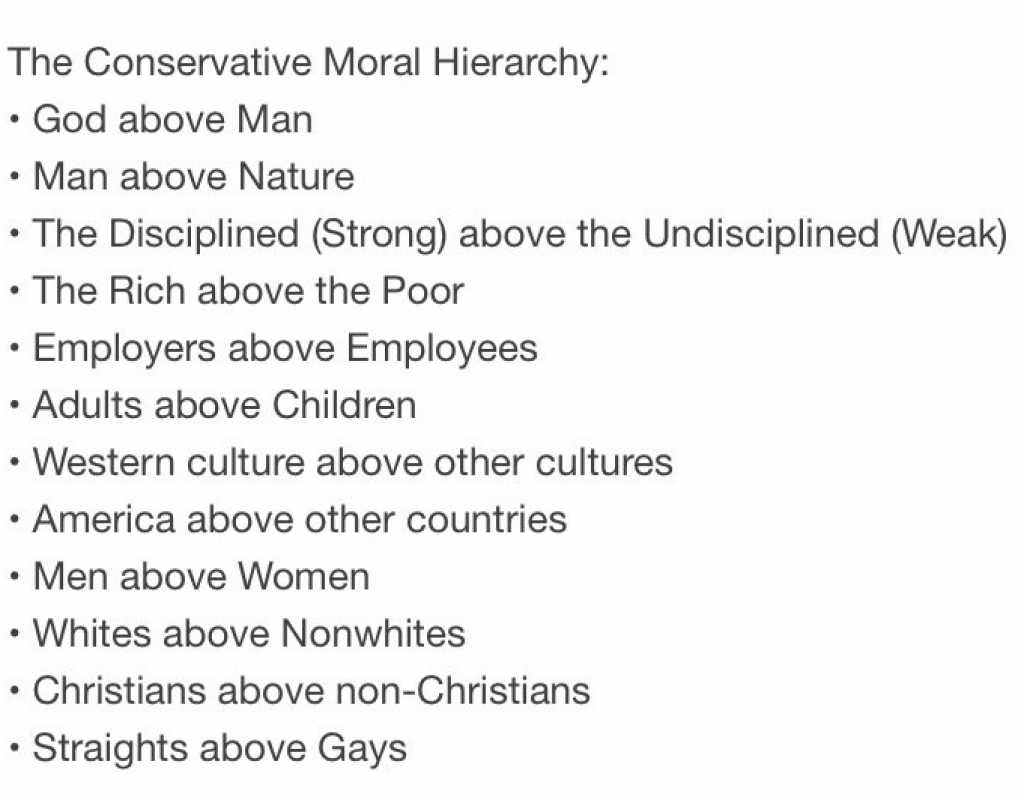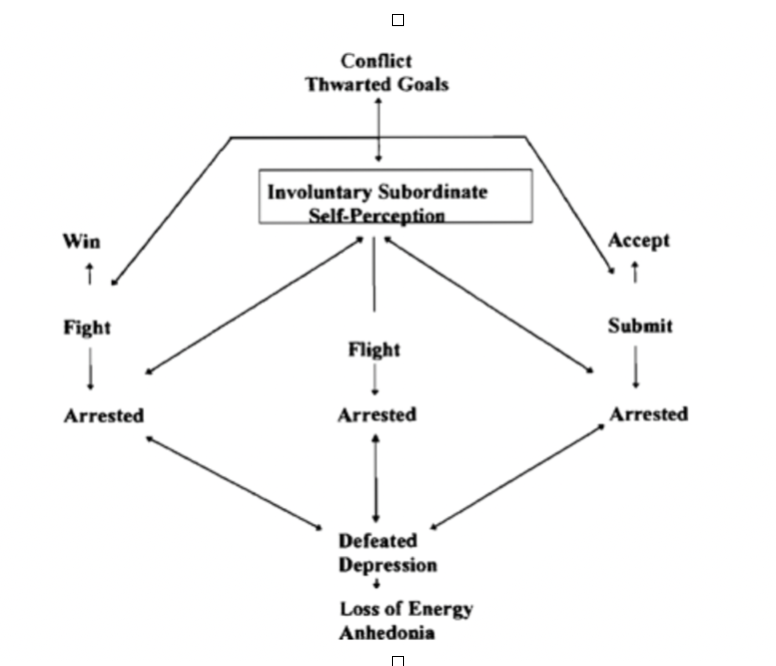I did not want to put this post up because it seems like a minor issue. But it is actually a major one. A lot of political psychologists and cognitive scientists are claiming that Democrats will continue to be unsuccessful at changing minds because they try to appeal to facts and figures. This simply does not resonate with people. The claim is that we need to start appealing to people’s moral intuitions, feelings, and values. This is the real reason why we vote anyhow, whether we are aware of it or not. We vote because of how the candidate makes us feel, which is tied to their values. The contemplation of any policies that serve our interests likely happened after we liked or disliked them. See notes (i). There is nothing to be ashamed of; voting is not like purchasing a mutual fund. In fact, there are lots of good reasons why voting based on our feelings towards the candidate and party affiliation is desirable.
Democrats put themselves in a precarious—and I think ultimately hopeless—position when they are really motivated by empathy, but wind up reasoning and arguing from interests—when they promote programs and tax policies to serve the “interests” of the middle class, or the uninsured, or victims of discrimination, or immigrants. They set themselves up for attacks as being unfair to ordinary Americans and promoting “special interests.” They set themselves up as being a special interest themselves, for courting voting blocs. And worse, they never argue on the basis of empathy, the real motivator of the policies. They fail in two ways: they fail to activate empathy—their own moral foundation—in the brains of voters, while they succeed in activating self-interest, which conservatives specialize in. [1]
A Summary For Those Short on Time
First, all the evidence suggests that our feelings towards a candidate, particularly from the values that they hold, predict voting behavior better than us sitting down and reasoning. Not that we didn’t use any reasoning at all, but it was the feelings that the candidate triggered in us that made us vote. Even when voters were torn between their reasons and feelings, 80% of them went with their gut. Second, if this is true, then Democrats would be more successful if they started to frame the issues in a way that would trigger our emotions, which means they should be more about our values, for example, caring for others. They have to be slogans like the conservatives use. Conservatives came up with the slogan “welfare queen”, which triggers a conservative into thinking that welfare is bad. This is because it is against their values of self-reliance etc. It is this that drives them to the voting booth, not facts and figures. Third, there is nothing wrong with voting based on party affiliation or with our feelings since it is a shortcut. It is a shortcut because we know democrats stand for our values and interests.
Caveat: Studies pick up our positive or negative associations with the candidate, presumably this is equivalent to us liking or not liking them. Although voting like this is a good heuristic because they will likely carry out our values and interests, once we like or dislike someone our objectivity for their performance goes out the window. This is one of the many costs of being partisan.
Why I’m a Semi-Ideologue
One of my first posts here was on “Why I’m Not an Ideologue”. What do we think was my motivation for writing this? Was it because I was an aspiring intellectual that despised emotions or because people judge us if we are not rational? Probably a little bit of both. I went through a stage where I studied bias and thought ideologues were victims of groupthink and tribalism. They often are. But I was smart enough to hedge the post. Because I said by not being an ideologue or partisan that we will be politically impotent. Then I read a few books on how we actually vote. I started to study what rationality actually means. I learned that our culture, which relies on Western philosophy, has been plagued with the idea that reason is separate from emotion. It is not. So this pristine idea of a true intellectual divorced from feelings was fiction. And if I am honest, I have morphed into a semi-ideologue.
Then I come across Gad Saad who is criticizing liberals for voting against Trump because of their visceral hate and contempt. Five years ago this would have made me want to mount a defense on how I carefully chose my candidate by looking at their stance on essential policies, voting records, and so forth. Because I wanted to show that I made smart decisions. But that is not how the mind works. We feel first which biases us to go in one direction. It takes practice to separate our feelings from a political candidate (i). This is because we care about values not just our interests. The former evokes more emotion while the latter would take conscious thought or rationality. We want to identify with the candidate, which means we want them to hold the same attitudes, beliefs, and values as we do. We like people who are similar to us. There is absolutely no reason to apologize or mount a counterdefense.
If interests were important to us, say economic interests, we better use conscious reasoning to choose a candidate. If we did not and interests were important to us, then that would be irrational. Take the value of how we treat others. If this is important to us, then not liking Trump is arguably rational. Take the fact that sharing similar values and beliefs with others allows us to collectively press our group’s interests. The idea of being tribal is not looking that bad anymore. Even if we blindly voted against Trump based on gut feelings, which eighty percent of us do when torn between our reasons and feelings, it still would be rational to vote based on partisanship because it is a heuristic. It is a shortcut that increases the likelihood that our values and interests will be carried out.
To be clear, I am not saying that ideologues are rational because we often are not. This is because of the myside bias and strong emotional commitment to beliefs and values. We mistake our beliefs to be scientific facts, and we will always favor evidence that conforms to our beliefs. But being tribal does not require scientific rigor. We value tribalism for other reasons, like sharing identities and beliefs with others, which yields group cohesion. What I am saying is that deciding to be ideological and voting based on party affiliation is a rational choice. I am certainly not saying that this puts us in a good position to objectively evaluate arguments. Because it does not. If anyone wants to understand why in more detail, I recommend the book “The Bias that Divides Us” by Keith E. Stanovich. It is startling how irrational we are when it comes to accepting facts that are contrary to our beliefs.
When we get emotional over a candidate or politics in general, then this means that either their personality, behavior, or values affected us. We have a rich set of emotions that get triggered over values. See Jonathan Haidt’s work if interested. Values are how we view the world, we think people ought to behave, and typically reflects our interests. Once values are accepted as norms in society, then they become morals. But the moralities of conservatives and liberals are distinctly different. Which one we prefer is based on what we think an ideal world should be like, which in turn is influenced by our personality. For example, the values of self-discipline and personal responsibility are heightened in the conservative worldview. So much so that they believe that a teenager who had an unwanted pregnancy should pay the consequence of her actions. So the teenager should not have been indulging in sex in the first place and should have been practicing self-restraint. Conservatives believe that punishment leads to self-discipline.
There are further values that influence why they are against abortion. Regardless, it does not matter if we do not like this reasoning. In fact, there probably is no reason that we can offer them to change their mind. This is because they have an emotional attachment to their values. In political or moral reasoning, emotion guides the way and reasons are after the fact. What are the reasons for? At least in politics, to back up our values and beliefs, which are formed by our feelings. Conservatives can use these shared values as a collective force to press their values which become their interests. Likewise, liberals use the emotion of compassion (or resentment) to press upon their value of equality, whether it be through race, gender, nationality, or socioeconomic status. Conservatives do not share this value since they are proponents of hierarchy and meritocracy (iii). But how do we ever make a difference without voting based on values? We must sometimes go with our feelings which tell us what we value or not.
What Does Rational Mean
In the everyday sense, rational means that we consider our long-term interests and do not let our emotions get the better of us. It also means that which is agreeable to reason. We give reasons to justify our position in order to persuade others that we are right. There is good reason to believe that we evolved the capacity to argue in order to persuade others of our worth and positions. But not to find the truth. A desire to find the truth must be some byproduct of evolution. This explains why we have strong biases that are quite stubborn to facts that contradict them. Biases thus may be a feature and not a bug. They help us to stick with our point of view in order to persuade others. Think of the survival advantage that we possess if we can influence others to get what we want.
When we say that we vote purely on the issues and separate personalities, it is because we want to convince others that we are rational. Why would we need to do this? Because we have a strong drive to conform with a payoff of approval. But where did this definition of rationality come from? It came from the Enlightenment era which places an emphasis on maximizing our self-interest or, in economics language, “utility”. The Enlightenment era assumed that reason is both conscious and emotion-free. Most reason is not though. This is so deeply ingrained in our worldviews that it may be difficult to accept that this is just a definition. It has heavily influenced both evolutionary theory and economics. We are self-interested, but we can also be empathetic and altruistic.
Let me give an example of the unconscious reasoning that conservatives use from “The Political Mind”. This type of reasoning does not fit the definition of Enlightenment rationality. Many conservatives often vote against their interests because they prefer to vote based on values. Why did so many impoverished blacks in the South vote for Reagan in the 80s? Because they got nothing from Reagan. What Reagan did was introduce the stereotype of welfare recipients as being lazy and immoral. In a conservative’s morality, if we are not wealthy enough, then that means that we are not self-disciplined enough. These two facts made it easy to appeal to blacks, and they believed that they did not deserve it. The reasoning that they carried out was unconscious and activated the conservative values within their mind. Although liberals would have seen a handout as empowering them to be successful (iii).
We may criticize the voters that go against their interests as being stupid. On the other hand, maybe there is some value to be had in earning everything on our own. And does everything need to conform to maximizing our self-interest? In the end, I am justified in voting based on how I feel towards the candidate since how I feel will coincide with my values.
Notes
i). We vote based on how we feel towards a candidate, values they represent, and our interests. But feelings predicted our voting behavior better than either our judgments about the candidate’s competence or personality or our reasons why we like or dislike a candidate. In fact, gut-level feelings are three times better at predicting a candidate than “rationality”. We can predict who we will vote for based on two things: our partisan feelings and how we feel toward the candidate. Even when we are torn between reasons and emotions over a candidate, eighty percent of us will go with our gut. Since voting on feelings is more associated with values than interests, interests being candidates’ foreign policy and stance on fiscal policy, etc., then it is values that get us to be tribal [2].
ii) For those that insist that they found reasons for not wanting to vote for Trump, these would have in all probability come after the fact—that is, after your feelings made you dislike him. This bias can easily pick out policies that Trump has that are not aligned with liberals’ values and interests. If we liked him, then his transgressions would have been excused or downplayed. In not liking him, we may have missed some things that would have worked in our favor or that we could have compromised with. That is the cost of being partisan. Although I tried to stay neutral, I disliked Trump from the beginning because he was a bully. Gad Saad would argue that Trump is an alpha male. Narcissists have a survival advantage over non-narcissists because they seek loyal people and exploit them. I agree with him on alpha but with caveats which I will discuss in an upcoming post. Abusive alpha males usually get ousted.
iii) As one justification for welfare: Income disparities and social class differences reflect those that have earned it, the “winners”, and those that have not, the “losers”. They do not care if the system is not fair in that not everyone has the same abilities and privileges to achieve relative success. I have consistently said that I have an argument based on the epidemiological studies which have proven that relative socioeconomic status differences result in reductions in health and happiness for those lower in status. In any social milieu, those who are higher up in status have an increased lifespan and more happiness than anyone that sits below them. In fact, those that make a household income of 40k relative to those who make 140k are at three times the relative risk for death. So we do not have to hold the value that hierarchies are immoral all by themselves because we can appeal to science. The objection I commonly receive is that we are hierarchical by nature. This is true as status hierarchies form quickly based on ability, appearances, intelligence, and so forth. But we are also cooperative by nature. In fact, many anthropologists have hypothesized that we lived in egalitarian tribes before the agricultural revolution. We would keep a check on both the bully and free rider under the values of egalitarianism.
References
[1] Lakoff, George. “The Political Mind”
[2] Westin, Drew. “The Political Brain”




